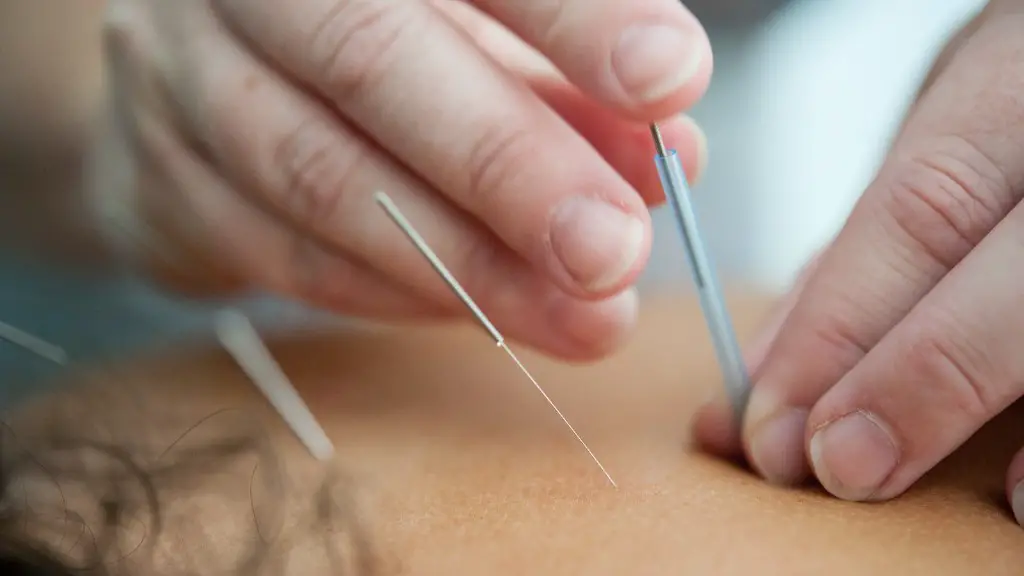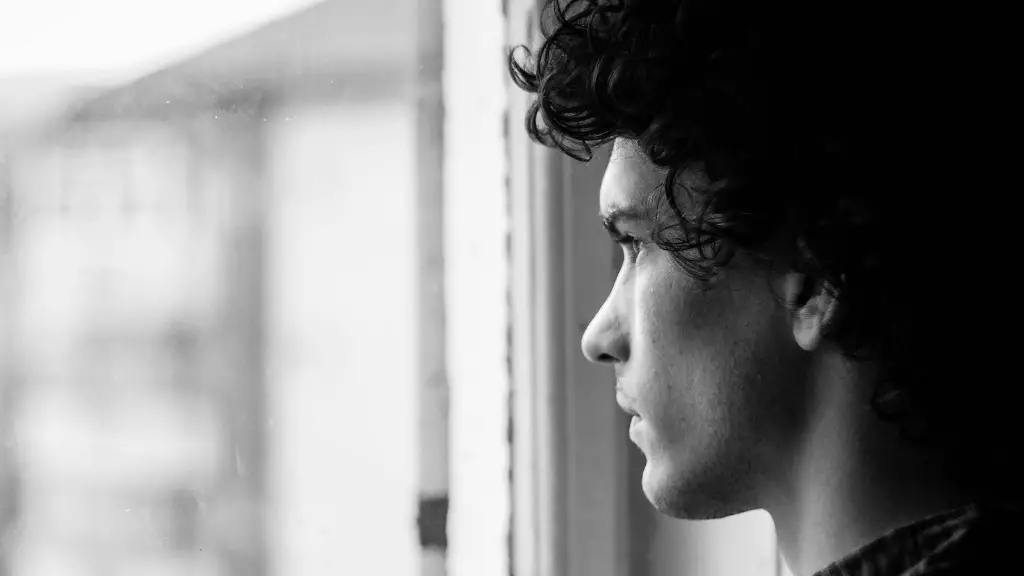It is not uncommon for people to experience hip pain at some point in their lives. However, for some people, hip pain can be a chronic and debilitating condition. There are many potential causes of hip pain, including arthritis, bursitis, and tendinitis. However, one potential cause that is often overlooked is emotional stress.
There is a growing body of evidence that suggests that emotional stress can contribute to the development of hip pain. Stress can cause the body to produce inflammation-promoting chemicals, which can damage joints and lead to pain. Stress can also cause muscles to tense up, which can pull on the hips and lead to pain.
If you are struggling with hip pain, it is important to explore all potential causes, including emotional stress. If stress is a contributing factor, there are many things that you can do to manage your stress and reduce your hip pain.
There is no definitive answer to this question as everyone experiences pain differently and reacts to stress in different ways. However, it is plausible that experiencing chronic or extreme emotional stress could lead to the development of hip pain, as stress can manifest itself in various ways throughout the body. If you are experiencing hip pain and believe that your emotional stress levels may be playing a role, it is best to consult with a doctor or medical professional to get a better understanding of your individual situation.
Can stress and anxiety cause hip pain?
The hips are the center of the body’s gravity and the connection point between the upper and lower body. They are also the source of the body’s emotional energy. When the hips are out of alignment, it can cause physical and emotional stress.
If you are suffering from stress, trauma or mental illness, it is important to keep your hips aligned and release any pent-up emotional energy. This will help you to stay physically and emotionally healthy.
Yoga, mindfulness, breathwork, and meditation can help release emotions that may be held in the body. Stretching can also help to release these emotions.
What parts of the hip does stress affect
Stress fractures of the hip can be extremely serious, and the treatment depends on the location and severity of the fracture. The femoral neck is the most common location for stress fractures of the hip, and these fractures can be very difficult to treat. If the fracture is not treated properly, it can lead to permanent disability or even death.
If you’re experiencing pain in your hips, it may be a sign that you’re feeling ‘stuck’ in your life and unable to make a decision about which way to go next. Hips represent decisions, so this pain is a sign that you need to take some time to think about what you want and what is best for you. Don’t be afraid to ask for help from others who may be able to give you some clarity on the situation.
Where is sadness stored in the body?
Emotional information is stored in our bodies through “packages” in our organs, tissues, skin, and muscles. These “packages” allow the emotional information to stay in our body parts until we can “release” it. Negative emotions in particular have a long-lasting effect on the body.
If you are experiencing any of the above symptoms, you may have a hip stress fracture. It is important to see a doctor to get a diagnosis and appropriate treatment. Treatment may include rest, ice, and pain medication. Surgery is rarely needed.
What emotion is stored in hips?
The hips are definitely an important storage vessel of emotional stress because of the psoas’ link to the adrenal glands and also the location of the sacral chakra. When our emotions are running high, it’s often difficult to release that stress and tension from our hips and lower back. However, if we can focus on releasing the emotions stored in our hips, it can help to ease the pressure we’re feeling and help us to better manage our stress levels.
Your hips are the center point of your body and store a lot of tension. This is because your muscles tense in response to trauma. When you think of your pelvis as the center point for your body, it makes sense that your hips would store a lot of tension.
What is the connection between hips and emotions
The psoas muscle is located in the hip area and is responsible for several key functions, including stabilizing the spine and pelvis, and helping to maintain correct posture. When this muscle becomes tight or shortened due to stress, it can cause a number of issues, including lower back pain, headaches, and poor posture. Luckily, there are a few things you can do to help loosen and lengthen the psoas muscle, such as stretching and massage.
Osteoarthritis is a type of arthritis that is caused by the wear and tear of the cartilage in the joints. This can lead to pain and stiffness in the joints, particularly in the hips. Women are more likely to suffer from osteoarthritis than men, and it is one of the most common causes of chronic hip pain in women.
Can depression cause hip pain?
Depression is a serious mood disorder that can cause physical symptoms that may lead to chronic pain and complicate treatment. These physical symptoms can include joint pain, limb pain, back pain, gastrointestinal problems, fatigue, psychomotor activity changes, and appetite changes. If you are experiencing any of these symptoms, it is important to talk to your doctor or mental health professional to get the help you need.
Chronic stress is a major contributor to long-term problems for heart and blood vessels. The constant increase in heart rate and the elevated levels of stress hormones and of blood pressure can take a toll on the body. Over time, this can lead to serious health problems, including heart disease. It is important to find ways to manage chronic stress in order to protect your health.
How can I tell what is causing my hip pain
There are several different types of imaging that can be used to look at the hip and other bones. X-rays are the most common, but ultrasound and MRI scans can also be used. Blood tests are also important in diagnosing arthritis.
When our second chakra is blocked, it can hinder our ability to let go and let things flow. This chakra is linked to sexuality, desire, pleasure, and procreation, so a blockage in this area can manifest as problems in these areas of our lives. To open up the second chakra, we can try doing things that are pleasurable and that help us to relax and let go of our inhibitions.
What chakra is hip openers?
The second chakra, Svadhisthana, is located in the pelvis along the spine. This chakra is all about self-expression and creativity, and is associated with the bladder, womb, and ovaries. It is the source of sexual energy and passion. When this chakra is balanced, we feel confident and creative. We feel sexually fulfilled and connected to our pleasure. When it is out of balance, we may feel blocked creatively, or we may experience sexual dysfunction or addiction.
There are many ways that you can release emotions from your body. One way is to acknowledge your feelings. This can be done by simply acknowledging that you are feeling something, without judgment or resistance. Another way is to work through trauma. This can be done by working with a therapist or counselor to help you process what you have been through. A third way is to do shadow work. This involves exploring the parts of yourself that you may be repressing or avoiding. Lastly, you can practice stillness. This can be done through meditation, yoga, or simply by taking some time for yourself to be in the present moment.
How do you release emotions stuck in your body
It’s so important to take time for yourself and to relax. One of the best ways to do this is to get out into nature, make art, or listen to music while you cook your favorite dinner. Taking a bubble bath or a nap can also help you to restore your body and mind.
Sadness can have a negative impact on various organs in the body, including the lungs, liver, and heart. This can in turn adversely affect the functional relationships between these organs. Additionally, sadness and grief can lead to blood deficiency in the heart and/or liver, as well as impact the function of the uterus.
Final Words
Although emotional stress isn’t a direct cause of hip pain, it can be a factor in worsening existing pain or causing other types of pain. When we’re stressed, our bodies go into fight-or-flight mode, which can lead to muscle tension and pain. Emotional stress can also make it difficult to cope with pain, which can lead to more pain and disability.
While the jury is still out on a definitive answer, there is some evidence to suggest that emotional stress can cause hip pain. This could be due to the body releasing hormones in response to stress, which can then lead to inflammation and pain. So if you’re experience hip pain and you’re also under a lot of stress, it’s worth considering the two as potential causes.





